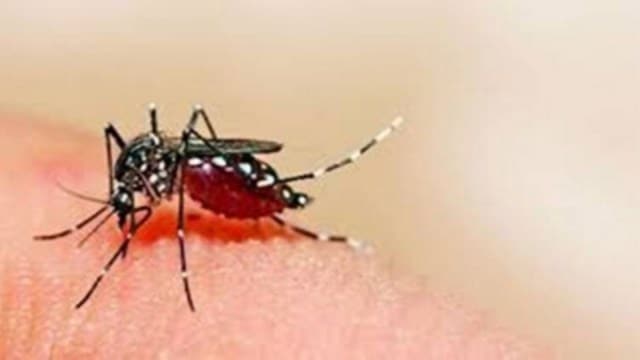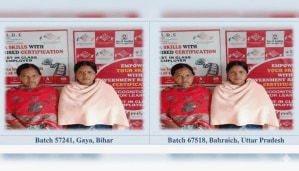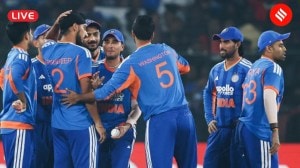Cracking the dengue code: Civic authorities turn to genome sequencing
According to Brihanmumbai Municipal Corporation (BMC) data, an alarming 4,384 dengue cases were reported between January 1 and October 22 this year.
 The city had reported 746 dengue cases between January and October last year, and 876 between January and December 2021. (File)
The city had reported 746 dengue cases between January and October last year, and 876 between January and December 2021. (File) A surge in dengue cases in Mumbai this year has prompted the civic authorities to initiate genome sequencing to identify the specific strain of the virus.
According to Brihanmumbai Municipal Corporation (BMC) data, an alarming 4,384 dengue cases were reported between January 1 and October 22 this year. The situation took a dire turn during monsoon, with a significant uptick of 3,675 cases between July 1 and October 22. The city had reported 746 dengue cases between January and October last year, and 876 between January and December 2021.
Amid the spike, the BMC has decided to conduct genome sequencing to identify the specific dengue virus strain responsible for the mosquito-borne disease. The BMC earlier conducted genome sequencing — an advanced scientific technique that provides critical insights into virus behaviour — during the swine flu epidemic.
Genome sequencing elucidates the genetic code embedded in RNA (ribonucleic acid), allowing for a detailed examination of the virus’s attributes including its infection mechanisms and replication processes within the human body. This approach yields a comprehensive virus profile that furnishes invaluable insights into the dynamics of ongoing infections. This comprehensive test will be conducted at BMC’s Kasturba Hospital laboratory, involving the analysis of around 180 to 200 patient samples collected from BMC dispensaries, hospitals, and private healthcare facilities. The primary emphasis would be on dengue patients, with a focus on the hardest-hit neighbourhoods.
Dengue is caused by four distinct strains: DENV-1, DENV-2, DENV-3, and DENV-4 — each with varying degrees of virulence. DENV-2 is of significant concern due to its high severity; with DENV-4 more prevalent in south India. “The implementation of genome sequencing will provide valuable insights into the prevalent strain among the Mumbai population and help identify the existing sub-variants, if any, within the virus — offering a deeper understanding of the outbreak,” said a senior health officer from BMC, requesting anonymity.
As per the BMC observation, dengue cases this year have been disproportionately distributed across Mumbai neighbourhoods — Andheri West (K-West ward) has reported 542 cases, 327 in Bandra West (H-West ward), 1,321 in Borivali East and West (under R Central), 253 in Andheri East and neighbouring areas (under K-East), 248 in Kandivali (South), and 191 in Bhandup and surrounding regions (under S Ward).
Meanwhile, the migrant hub and financial capital status of Mumbai has led the state government to urge the BMC to combat diseases such as dengue, malaria, and chikungunya. They have suggested seeking support from bodies such as WHO (World Health Organization) and UNICEF (United Nations International Children’s Emergency Fund). Following a review meeting on October 13, the state government has contacted corporations reporting a surge in dengue cases, emphasising the risk of the spread of the disease in Mumbai.
Deputy Chief Minister Ajit Pawar, meanwhile, has been diagnosed with dengue and advised rest for the next few days, senior NCP leader Praful Patel said on Sunday. Ajit is undergoing treatment at his residence in Pune.







